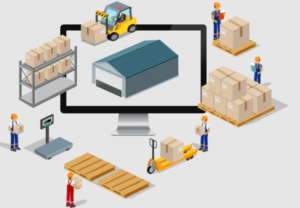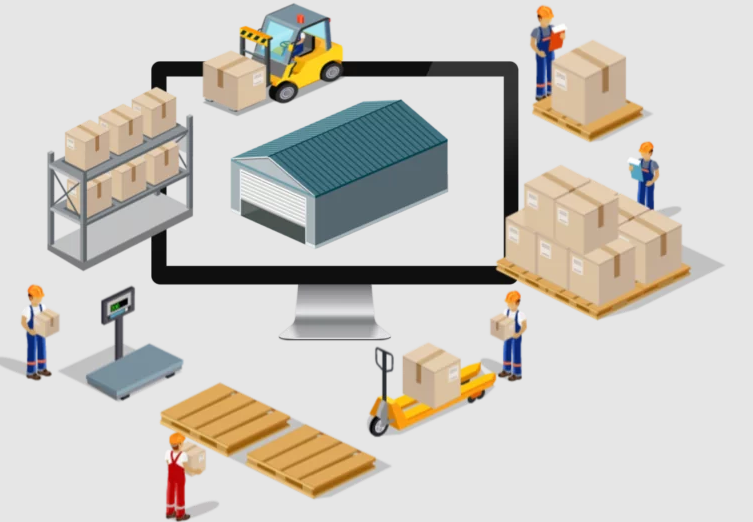Warehouse management systems (WMS) are software applications designed to help businesses manage their warehouse operations. These systems provide real-time visibility into inventory levels, orders, and shipments, allowing companies to improve efficiency, reduce costs, and increase customer satisfaction.
Why Do You Need a WMS?
A well-designed WMS can provide a number of benefits to your business, including:
- Improved Inventory Management: With real-time inventory tracking, WMS can help you optimize stock levels and reduce the risk of overstocking or stockouts.
- Increased Efficiency: WMS can automate manual processes such as picking and packing, reducing the time and effort required for these tasks.
- Better Visibility: By providing real-time data, WMS can give you a clear picture of your warehouse operations, allowing you to make more informed decisions.
- Cost Reduction: By streamlining processes and reducing manual labor, WMS can help you cut costs associated with warehousing and logistics.

How Does a WMS Work?
A typical warehouse management system consists of several key components:
- Warehouse Mapping: This feature allows you to define the layout of your warehouse and assign locations for different items.
- Inventory Management: WMS provides real-time visibility into inventory levels, allowing you to track stock levels and make informed decisions about restocking or reordering.
- Order Processing: WMS can help you manage orders from multiple channels, including online orders, phone orders, and in-store purchases.
This allows for efficient order fulfillment and reduces the risk of errors.
- Barcode Scanning: WMS often incorporates barcode scanning technology, allowing for quick and accurate tracking of inventory movements.
- Reporting and Analytics: WMS can provide detailed reports and analytics on key performance indicators such as inventory levels, order accuracy, and warehouse productivity.
Choosing the Right WMS
There are many different warehouse management systems available in the market, each with its own unique features and capabilities. When choosing a WMS for your business, it is important to consider your specific needs and requirements. Some key factors to consider include:
- Scalability: Make sure the WMS can accommodate your current inventory levels and also has the ability to scale as your business grows.
- Integration: It is important to choose a WMS that can easily integrate with your existing systems, such as ERP or CRM software.
- User-Friendly: The WMS should be user-friendly and easy for your employees to learn and use on a daily basis.
- Customer Support: Look for a WMS provider that offers good customer support, in case you encounter any issues or have questions about the system.
- Cost: WMS can be a significant investment for any business, so it is important to consider the cost and potential return on investment before making a decision.
Implementing a Warehouse Management System
Implementation of a Warehouse Management System (WMS) isn’t something to be taken lightly. It necessitates meticulous planning and consistent communication across all levels of your organization. Begin with a comprehensive analysis of your existing workflows and systems, identifying bottlenecks and areas for improvement. Following this, detailed planning regarding the system’s configuration, testing, and staff training is required. Remember, a well-planned and executed implementation can significantly reduce the risk of operational disruptions and increase the chances of success.
The Future of WMS
As technology continues to evolve, Warehouse Management Systems are also advancing rapidly, with new functionalities and capabilities being introduced regularly. Artificial Intelligence and Machine Learning are increasingly being integrated into WMS to improve inventory forecasting and optimize warehouse operations. Moreover, the rise of the Internet of Things (IoT) is enhancing real-time tracking and visibility. Blockchain technology is also on the horizon, promising secure and transparent tracking of inventory across the supply chain. These advancements highlight the potential of WMS in the future of warehousing and logistics.
Conclusion
Warehouse Management Systems (WMS) are crucial tools for any business that deals with storage and distribution of inventory. By providing real-time visibility, automating processes, and optimizing warehouse operations, WMS can help businesses improve efficiency, reduce costs, and increase customer satisfaction. It is important to carefully consider your specific needs and requirements when choosing a WMS, as well as properly plan and execute the implementation process. With advancements in technology, WMS will continue to play a vital role in the future of warehousing and logistics. So, it is essential for businesses to stay updated with the latest trends and technologies in this field.
So, whether you are just starting your business or looking to improve your warehouse operations, understanding Warehouse Management Systems is crucial for success in the modern business world. With the right WMS, you can optimize your inventory management and streamline your warehouse processes, leading to increased productivity, cost-savings, and ultimately, better customer satisfaction. So, consider investing in a WMS today and stay ahead of the competition. Let your warehouse operations reach their full potential with the help of a reliable and efficient Warehouse Management System.

